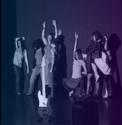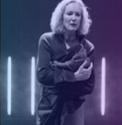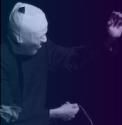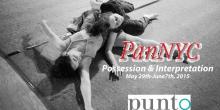
PanNYC 2015
PANTHEATRE NEW YORK (PANNYC) is an annual training intensive, directed by Enrique Pardo and Linda Wise and produced by the Nettles Artists Collective since 2009. The aim of this workshop is to convey PANTHEATRE‘s performance research and training methods which is one of today’s most culturally mature and innovative performance laboratories in the world. PanNYC is aimed for artists and teachers from all the performing fields such as theater, voice, dance, and circus as well as scholars, therapists or anyone interested in cultural and critical studies linked the to mythology and archetypal psychology.
Renowned Paris-based Pantheatre will be offering its yearly training by artistic directors Enrique Pardo and Linda Wise in NYC. Produced by Nettles Artists Collective, this year PanNYC will include two weekend intensives on Voice Performance and Choreographic Theatre, as well as two concurrent weeklong programs: Interpretation by Linda Wise and Possession by Enrique Pardo.
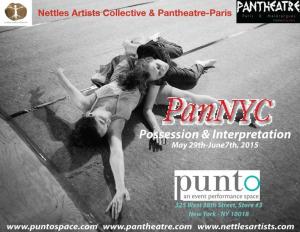
ABOUT: Founded in 1981, Pantheatre was the first independent company to emerge from the Roy Hart Theatre (1969-1989). Its directors are founding members of the Roy Hart International Artistic Centre. It was founded by Enrique Pardo with a solo performance on the God Pan, following several years of voice and movement research with a circle of actors from the original Roy Hart Theatre Company – amongst them, Liza Mayer, Linda Wise, Vicente Fuentes, Saule Ryan, Kevin Crawford, Diana Palmer, Noah Pikes and Kozana Lucca.
Registration opens March 1st, 2015.
For any inquiries please contact Debora Balardini via email: pannycworkshop@gmail.com
PanNYC 2015 workshop
With the directors of Pantheatre, France
Linda Wise and Enrique Pardo
The Art of Interpretation
Directed by Linda Wise – with pianist Pierre-François Blanchard.
Interpreting songs - including Roy Hart extended voice ranges and voice performance improvisational departures.
“Singing a song is a performance challenge in which you have three to five minutes to tell a story, constellate an idea and convey an emotion. It is an expression unremitting in its structure – you search to discover your own unique musicality with both its accuracy and feeling, whilst giving the information of the text. You also have to enhance and resolve the poetic and psychological tension between music and words.” Linda Wise. See more (including on the choice of songs) on : HYPERLINK "http://www.pantheatre.com/pdf/2-songs.pdf" http://www.pantheatre.com/pdf/2-songs.pdf
Practically:
Participants must choose a song and send the score and/or MP3 recording to Linda Wise at least one week before the workshop HYPERLINK "mailto:linda@pantheatre.com" linda@pantheatre.com
Please contact Linda if you have difficulty in choosing your material
Please bring 3 copies of the score to the workshop.
The art of possession –
Directed by Enrique Pardo
Choreographic Theatre - including singing, voice performance & text
Post-modernism seems to have stalled in self-possession.
Deconstruction rarely flies off the rational handle – even when poetic or ironic.
“It takes shamanistic moves to elude the Western rational mind.” (James Hillman.)
Now we have Peter Kingsley’s shamanic stunning proposals (check him up!)
We must call on voices that venture beyond self-composure and self-expression.
The art of flying off the rational or self-centered handle, with voice, music and (e)motion.
The art of taking the lid off the meanings and enactments of texts.
Practically:
Texts : each participant brings a text learnt by heart. The text is the “oracular contract” for this work. See advice and examples on HYPERLINK "http://www.pantheatre.com/pdf/2-texts.pdf" http://www.pantheatre.com/pdf/2-texts.pdf
Choreography : here, fundamentally a question of “realizing” where you are, of finding your place, and therefore: the plot you are in.
Movement: to “make a move” is above all a quality of initiative, of making the appropriate gesture: be it loving or mad – or preferably both.
Dance: how to include “the dance of ideas” – especially in relation to texts and emotions.
Dis-association: the motto of a Spanish garrison in Granada read: “School of Genius : Doctrine and Dressage”. Poietics and the method in the madness.

